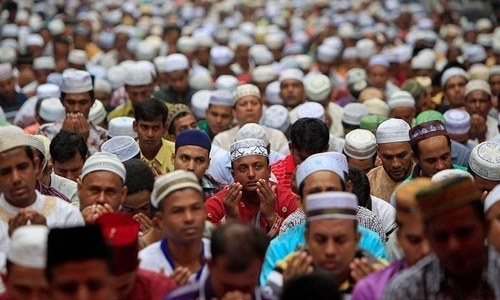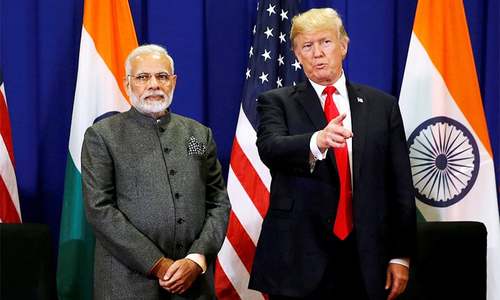US Secretary of State Mike Pompeo will tackle a host of delicate issues when he gets into New Delhi on Tuesday for talks with Indian leaders, from trade to India's long-standing defence and energy ties to Russia and Iran.
Relations between the United States and India have dramatically improved since the days of the Cold War but they have still fallen short of their promise and now have run into serious problems over tariffs, flow of data and tighter Indian rules on online commerce in one of the world's fastest-growing large markets.
Pompeo will kick off his visit calling on Prime Minister Narendra Modi who was re-elected for a second term last month with a powerful mandate that analysts say gives him the chance to take bold reforms to propel Asia's third-largest economy to faster growth.
Just ahead of his visit, India imposed tariffs on some U.S. goods after President Donald Trump's administration threw India out of a group of countries that were allowed duty-free access for some of their products into the large US market.
While trade issues are led by the US Trade Representative's office and the commerce departments, Pompeo is expected to raise some of the concerns US companies have about new rules on local storage of data as well as restrictions on foreign companies' online operations in India.
“We expect trade and ecommerce to figure in the meetings with the PM and the foreign minister, we are ready to engage them on data issues,” said an Indian government official, speaking on condition of anonymity in line with service rules.
Pompeo's visit is expected to lay the ground for talks between Trump and Modi later in the week on the sidelines of the G20 summit in Osaka.
India is hoping that this week's high level meetings would help re-start talks over a trade package the two had been negotiating for months, the official said.
In recent weeks, the United States has also stepped up pressure on India not to proceed with its purchase of S-400 surface-to-air missile systems from Russia.
India says the missiles are necessary to bolster defences against China, but Washington has said it rather India looked at other options including US defence firms for alternate weapons system.
A second Indian official said India believed it had a case for a waiver from US sanctions should it go ahead with the missile system purchase from Russia. Washington has also threatened to impose sanctions on Turkey which too is buying the S 400 system.
Under US pressure India has stopped buying oil from Iran, one of its top suppliers and the two Indian officials said the oil-dependent economy had taken a hit, as a result.
Now, with tensions rising between the United States and Iran, New Delhi is further worried about the security of its energy supplies.












































